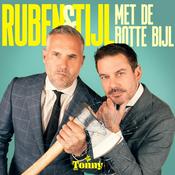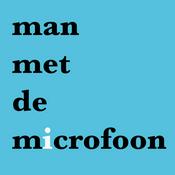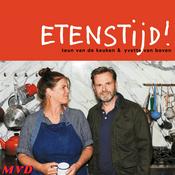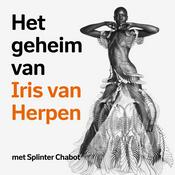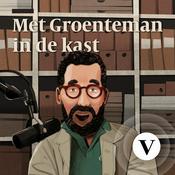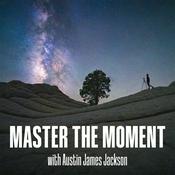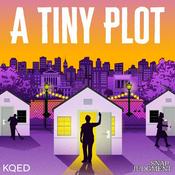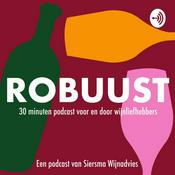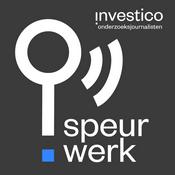Investing in Regenerative Agriculture and Food
Koen van Seijen
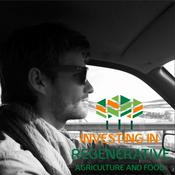
Nieuwste aflevering
487 afleveringen
405 Sylvia Banda - How she trained 60,000 farmers and transformed Zambia's food system
17-2-2026 | 1 u.A conversation with Sylvia Banda, Zambian business woman, restaurateur and social entrepreneur about her journey started when when she was 12. She opened her first food company, and she hasn’t stopped since. She now runs a multi-million-dollar business with over 15 restaurants in Lusaka, Zambia, a food- processing company selling traditional Zambian food worldwide, and has trained over 60,000 smallholder farmers to produce higher-quality products and process them to receive better prices.
We talk about why researchers should take a back seat and let farmers and entrepreneurs lead now; why the hand tools many farmers still use belong in a museum and why mechanisation is key, but with care; why processing and preserving are essential to ending hunger; and about nutrition, traditional food versus imported food, and how she taught urban people to re-appreciate what is often considered “food for the poor” that is traditional, nutrient-dense, and tasty food. To supply all of this, she set up two factories and trained over 60,000 smallholder farmers, changing many lives.
Enjoy the story and the knowledge of a true Zambian and Southern African powerhouse.
More about this episode.
==========================
In Investing in Regenerative Agriculture and Food podcast show we talk to the pioneers in the regenerative food and agriculture space to learn more on how to put our money to work to regenerate soil, people, local communities and ecosystems while making an appropriate and fair return. Hosted by Koen van Seijen.
==========================
👩🏻💻 YOUR OUR WEBSITE
📚 JOIN OUR VIDEO COURSE
💪🏻 SUPPORT OUR WORK
Join Gumroad
Share it
Give a 5-star rating
Buy us a coffee… or a meal!
==========================
🎙 LISTEN TO OUR PODCAST AND SUBSCRIBE TO OUR CHANNEL OR WATCH IT ON 📽️ our YouTube channel
==========================
FOLLOW US!
🔗 Linkedin
📸 Instagram
==========================
The above references an opinion and is for information and educational purposes only. It is not intended to be investment advice. Seek a duly licensed professional for investment advice.
Thoughts? Ideas? Questions? Send us a message!
Use KOEN10 for 10% off
RFSI Europe 2026
Find out more about our Generation-Re investment syndicate:
https://gen-re.land/
Thank you to our Field Builders Circle for supporting us. Learn more here
Support the show
Feedback, ideas, suggestions?
- Twitter @KoenvanSeijen
- Get in touch www.investinginregenerativeagriculture.com
Join our newsletter on www.eepurl.com/cxU33P!
Support the show
Thanks for listening and sharing!- We are at an interesting moment in the dairy sector. For years, smaller farmers with around 200 cows, who were also great graziers, could undercut the costs of large concentrated dairy operations, keeping costs low, taking healthy margins in good years, and surviving the bad ones.
But something has changed: CAFO dairies have grown bigger and bigger (10,000 cows is now normal, and 100,000 is no longer an exception) and their economies of scale mean they are undercutting the grazers. Of course, this leads to massive manure lagoons, animal welfare disasters, and all kinds of other externalities, but nobody is paying for that yet. Not to mention that you can only push biology so far before it literally breaks.
So what’s next for regenerative grazing? Joe Tomandl, 4th generation dairy farmer, founder and director of the Dairy Grazing Alliance, argues instead for focusing on the transition of mid-size farms with 300– 700 cows that have surrounding land which could be grazed but currently isn’t. You need grazing experience and a long-term offtake agreement, but it can be done.
More about this episode.
==========================
In Investing in Regenerative Agriculture and Food podcast show we talk to the pioneers in the regenerative food and agriculture space to learn more on how to put our money to work to regenerate soil, people, local communities and ecosystems while making an appropriate and fair return. Hosted by Koen van Seijen.
==========================
👩🏻💻 YOUR OUR WEBSITE
📚 JOIN OUR VIDEO COURSE
💪🏻 SUPPORT OUR WORK
Join Gumroad
Share it
Give a 5-star rating
Buy us a coffee… or a meal!
==========================
🎙 LISTEN TO OUR PODCAST AND SUBSCRIBE TO OUR CHANNEL OR WATCH IT ON 📽️ our YouTube channel
==========================
FOLLOW US!
🔗 Linkedin
📸 Instagram
==========================
The above references an opinion and is for information and educational purposes only. It is not intended to be investment advice. Seek a duly licensed professional for investment advice.
Thoughts? Ideas? Questions? Send us a message!
Use KOEN10 for 10% off
RFSI Europe 2026
Find out more about our Generation-Re investment syndicate:
https://gen-re.land/
Thank you to our Field Builders Circle for supporting us. Learn more here
Support the show
Feedback, ideas, suggestions?
- Twitter @KoenvanSeijen
- Get in touch www.investinginregenerativeagriculture.com
Join our newsletter on www.eepurl.com/cxU33P!
Support the show
Thanks for listening and sharing! - The difference between agroecology and regenerative agriculture is the deep social change we need in the food and agriculture system. As Laura Ortiz Montemayor told us once "ecology without social justice is just gardening". Million Belay, who leads the Alliance for Food Sovereignty in Africa, the largest social movement on the African continent, is very clear stop intervening with agriculture on the continent, stop imposing all kinds of rules, practices, seeds, inputs etc, which don’t serve in this context (and we could argue in the context we come from as well, how many European banned pesticides are exported to the continent?)
We talk about the shut down of the USAID which was actually a good shock to the system. And finally donors, which unfortunately dictate quite a bit the direction, are talking and slowly also acting around agroecology. We discuss how through lobbying they managed to get many countries to adopt agroecology policies in the last few years, what Million would do with a billion dollar and what his message for investors is.
More about this episode.
==========================
In Investing in Regenerative Agriculture and Food podcast show we talk to the pioneers in the regenerative food and agriculture space to learn more on how to put our money to work to regenerate soil, people, local communities and ecosystems while making an appropriate and fair return. Hosted by Koen van Seijen.
==========================
👩🏻💻 YOUR OUR WEBSITE
📚 JOIN OUR VIDEO COURSE
💪🏻 SUPPORT OUR WORK
Join Gumroad
Share it
Give a 5-star rating
Buy us a coffee… or a meal!
==========================
🎙 LISTEN TO OUR PODCAST AND SUBSCRIBE TO OUR CHANNEL OR WATCH IT ON 📽️ our YouTube channel
==========================
FOLLOW US!
🔗 Linkedin
📸 Instagram
==========================
The above references an opinion and is for information and educational purposes only. It is not intended to be investment advice. Seek a duly licensed professional for investment advice.
Thoughts? Ideas? Questions? Send us a message!
Use KOEN10 for 10% off
RFSI Europe 2026
Find out more about our Generation-Re investment syndicate:
https://gen-re.land/
Thank you to our Field Builders Circle for supporting us. Learn more here
Support the show
Feedback, ideas, suggestions?
- Twitter @KoenvanSeijen
- Get in touch www.investinginregenerativeagriculture.com
Join our newsletter on www.eepurl.com/cxU33P!
Support the show
Thanks for listening and sharing! - This is deep dive into common misconceptions about red meat, methane emissions from cows, and the feasibility of transitioning to grass-fed beef production. We discuss the health impacts of red meat based on the cow's diet, the actual environmental effects of methane from ruminants, and busts myths surrounding CAFO operations and land use.
Cows. Methane. Climate.
The debate is louder than ever — and still full of myths.
That why, after recording a podcast on why building a $100B home for regenerative brands is key, with Martin Reiter, we went for a Meat MythBusters episode in which we unpack some uncomfortable truths that rarely make it into headlines:
📌 The impact of red meat on health and climate depends entirely on how cows are raised
📌 Methane from ruminants is fundamentally different from fossil CO₂, different cycle, different impact
📌 Pasture-fed cattle can regenerate soils, increase biodiversity, and recycle carbon
📌 The real land-use inefficiency isn’t grazing, it’s how much land we dedicate to corn, soy, and biofuels
📌 A transition to grass-fed beef is not only possible, it may be environmentally smarter
==========================
In Investing in Regenerative Agriculture and Food podcast show we talk to the pioneers in the regenerative food and agriculture space to learn more on how to put our money to work to regenerate soil, people, local communities and ecosystems while making an appropriate and fair return. Hosted by Koen van Seijen.
==========================
👩🏻💻 YOUR OUR WEBSITE
📚 JOIN OUR VIDEO COURSE
💪🏻 SUPPORT OUR WORK
Join Gumroad
Share it
Give a 5-star rating
Buy us a coffee… or a meal!
==========================
🎙 LISTEN TO OUR PODCAST AND SUBSCRIBE TO OUR CHANNEL OR WATCH IT ON 📽️ our YouTube channel
==========================
FOLLOW US!
🔗 Linkedin
📸 Instagram
==========================
The above references an opinion and is for information and educational purposes only. It is not intended to be investment advice. Seek a duly licensed professional for investment advice.
Thoughts? Ideas? Questions? Send us a message!
Support the show
Feedback, ideas, suggestions?
- Twitter @KoenvanSeijen
- Get in touch www.investinginregenerativeagriculture.com
Join our newsletter on www.eepurl.com/cxU33P!
Support the show
Thanks for listening and sharing! - What is needed to truly move the needle on health? Create more research, more trials on nutrient density, more advocacy? Or, as Martin Reiter, founder of RARE argues, create the next regen Nestlé or Unilever: a 100 billion (yes, that’s a B) regenerative consumer goods conglomerate, with only better-for-you and better-for-the-planet brands. The demand is there; the current incumbents are unable to innovate in regen, as they are built on chemical ingredients.
The story usually goes like this: a group of people sets up a food (or cosmetics) brand that is better for you and better for the planet. Much better ingredients, honest sourcing, actually healthy, not UPF, etc. Then they need some money and raise funds, keep building, scaling, and at some point, 10–15 years down the road, the founders get tired and want to take some money off the table. and their existing investors need to get out and return money to their LPs.
Currently, their only option is to sell to an incumbent, which then unfortunately usually screws it up. They start tweaking the ingredients, squeezing farmer margins, etc. The original founders leave after a few frustrating years.
Is there a better way? A permanent home for regen, good-for-you, good-for-the-planet brands? A regen Nestlé or Unilever, if you will?
More about this episode.
==========================
In Investing in Regenerative Agriculture and Food podcast show we talk to the pioneers in the regenerative food and agriculture space to learn more on how to put our money to work to regenerate soil, people, local communities and ecosystems while making an appropriate and fair return. Hosted by Koen van Seijen.
==========================
👩🏻💻 YOUR OUR WEBSITE
📚 JOIN OUR VIDEO COURSE
💪🏻 SUPPORT OUR WORK
Join Gumroad
Share it
Give a 5-star rating
Buy us a coffee… or a meal!
==========================
🎙 LISTEN TO OUR PODCAST AND SUBSCRIBE TO OUR CHANNEL OR WATCH IT ON 📽️ our YouTube channel
==========================
FOLLOW US!
🔗 Linkedin
📸 Instagram
==========================
The above references an opinion and is for information and educational purposes only. It is not intended to be investment advice. Seek a duly licensed professional for investment advice.
Thoughts? Ideas? Questions? Send us a message!
Use KOEN10 for 10% off
RFSI Europe 2026
Find out more about our Generation-Re investment syndicate:
https://gen-re.land/
Thank you to our Field Builders Circle for supporting us. Learn more here
Support the show
Feedback, ideas, suggestions?
- Twitter @KoenvanSeijen
- Get in touch www.investinginregenerativeagriculture.com
Join our newsletter on www.eepurl.com/cxU33P!
Support the show
Thanks for listening and sharing!
Meer Kunst podcasts
Trending Kunst -podcasts
Over Investing in Regenerative Agriculture and Food
Investing in Regenerative Agriculture and Food podcast features the pioneers in the regenerative food and agriculture space to learn more on how to put our money to work to regenerate soil, people, local communities and ecosystems while making an appropriate and fair return. Hosted by Koen van Seijen.
Podcast websiteLuister naar Investing in Regenerative Agriculture and Food, De Groene Amsterdammer Podcast en vele andere podcasts van over de hele wereld met de radio.net-app

Ontvang de gratis radio.net app
- Zenders en podcasts om te bookmarken
- Streamen via Wi-Fi of Bluetooth
- Ondersteunt Carplay & Android Auto
- Veel andere app-functies
Ontvang de gratis radio.net app
- Zenders en podcasts om te bookmarken
- Streamen via Wi-Fi of Bluetooth
- Ondersteunt Carplay & Android Auto
- Veel andere app-functies


Investing in Regenerative Agriculture and Food
Scan de code,
download de app,
luisteren.
download de app,
luisteren.


